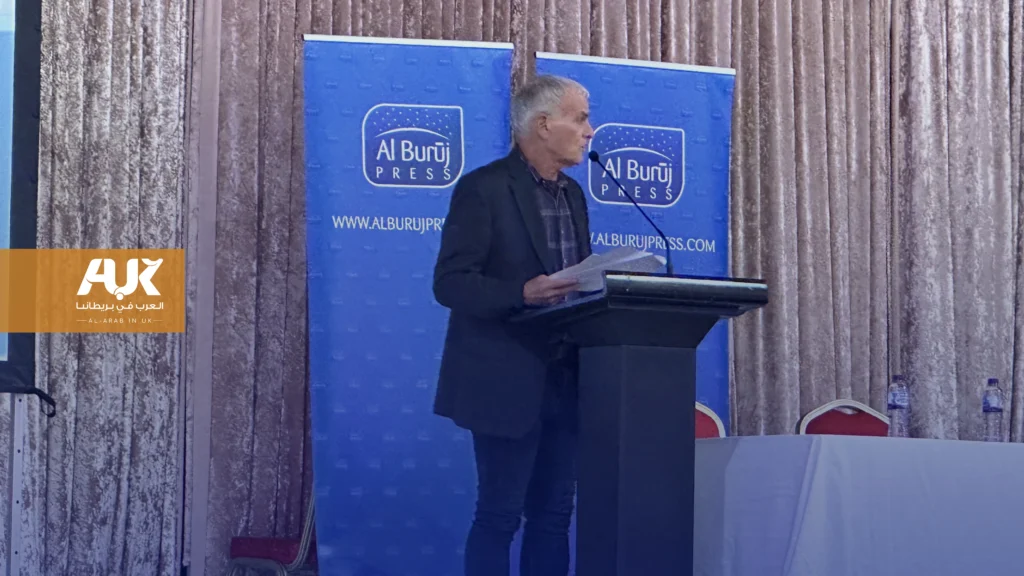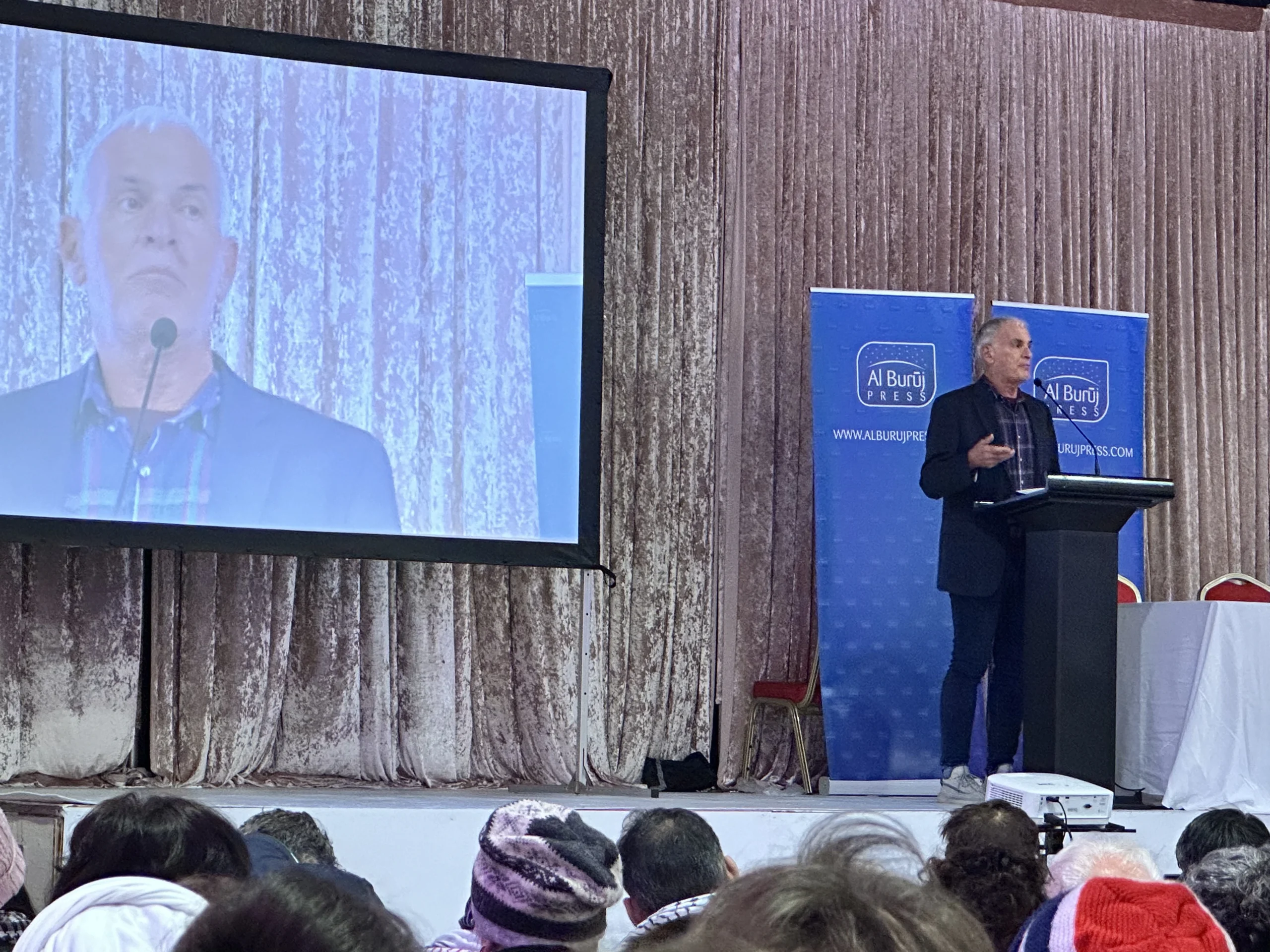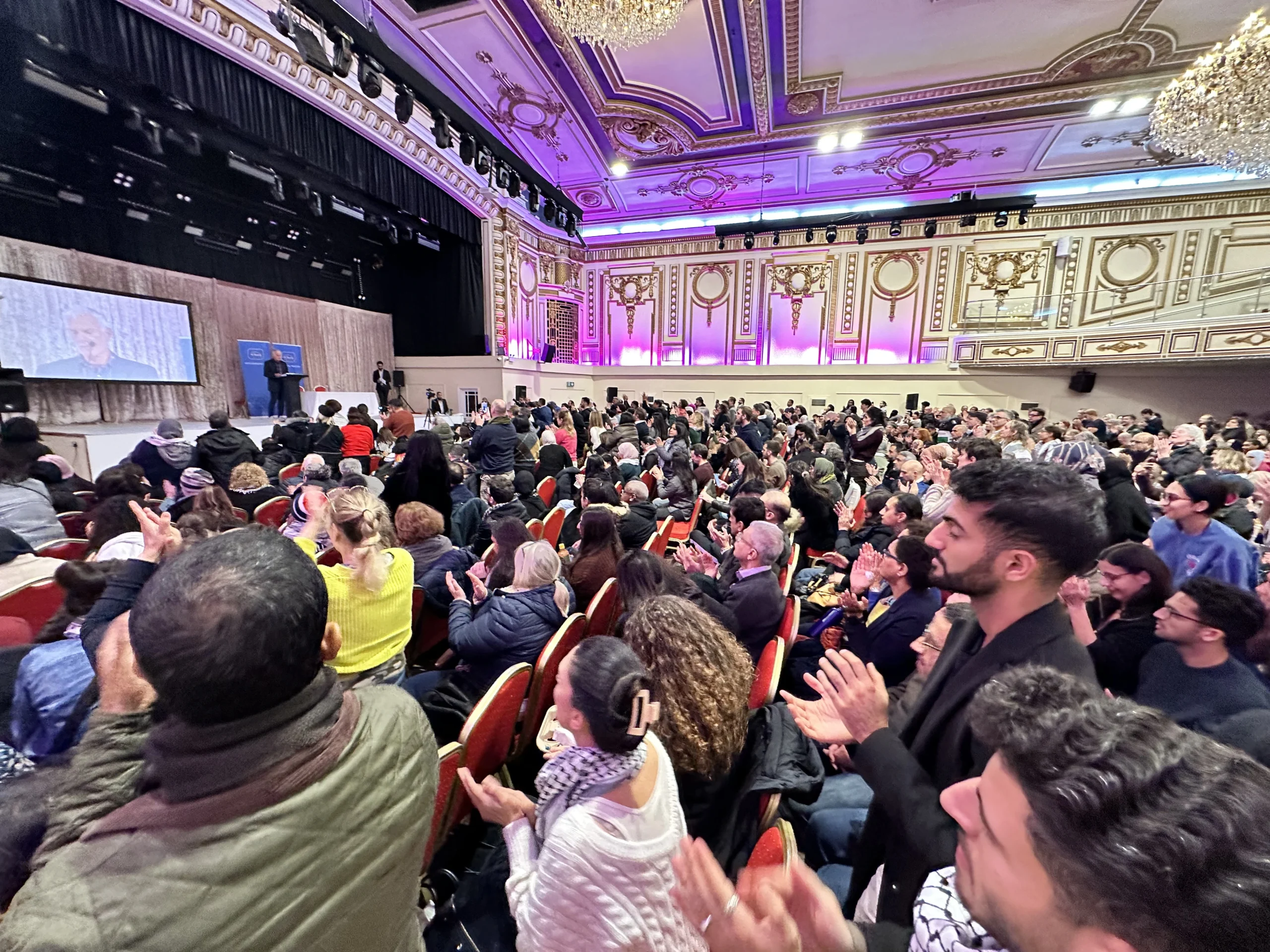Gaza’s Struggle Unveiled: Professor Norman Finkelstein’s Insightful Evening in London

On November 27, 2024, The Royal Regency in London hosted a compelling lecture by Professor Norman Finkelstein, a distinguished American political scientist renowned for his extensive research on the Israeli–Palestinian conflict and the politics of the Holocaust.
Born in New York City in 1953 to Jewish Holocaust survivors, Finkelstein earned his Ph.D. in political science from Princeton University. He has held academic positions at institutions such as Brooklyn College, Rutgers University, and DePaul University. His notable works include The Holocaust Industry and Gaza: An Inquest into Its Martyrdom.
The event, titled “Gaza’s Struggle: Hope Amidst Despair,” was organized by Al Buruj Press and attracted a diverse audience eager to gain insights into Gaza’s past, present, and future. Professor Finkelstein provided a thorough analysis of Gaza’s enduring hardships, emphasizing the continuity of its struggles rather than viewing recent events as isolated incidents.
Historical Context and Ongoing Struggles

Professor Finkelstein traced Gaza’s challenges back to the aftermath of the 1948 war, highlighting its longstanding depiction as a “vast concentration camp.”
He referenced various figures, including UN officials and Israeli authorities, who have used this characterization over the decades. For instance, in the 1950s, UN representative E.L.M. Burns described Gaza as resembling a concentration camp, a sentiment echoed by others in subsequent years.
He detailed the severe impact of Israel’s blockade, which organizations like Human Rights Watch have labeled a “crime against humanity.” Finkelstein also recounted the series of military operations conducted by Israel in Gaza, such as Operation Cast Lead in 2008–2009 and Operation Protective Edge in 2014, which resulted in significant civilian casualties and widespread destruction.
He noted that the devastation has escalated over time, with recent estimates indicating that the rubble from these operations has reached 42 million tons.
Gaza’s Pursuit of Justice

The lecture highlighted Gaza’s persistent efforts to seek justice and normalcy through various means:
Diplomacy: Finkelstein cited a 2009 U.S. government agency report stating that Hamas had been adjusting its political program and signaling readiness to coexist with Israel.
International Law: He discussed Hamas’s cooperation with UN Commissions of Inquiry investigating conflicts, despite facing severe criticism and accusations of war crimes.
Nonviolent Resistance: Finkelstein described the Great March of Return in 2018, where Gazans engaged in peaceful protests against the blockade, only to be met with lethal force from Israeli snipers targeting civilians, including children and disabled individuals.
He argued that these avenues were systematically blocked, leaving Gazans with limited options to address their plight.
Moral Reflections and Future Outlook

Professor Finkelstein shared his personal moral deliberations following the events of October 7, 2023. While acknowledging the gravity of the actions taken that day, he expressed an inability to condemn the people of Gaza, given their prolonged suffering and lack of viable alternatives.
He emphasized the importance of understanding the context of Gaza’s resistance and the international community’s role in perpetuating or alleviating their hardships.
Read More:
ShortURL ⬇


